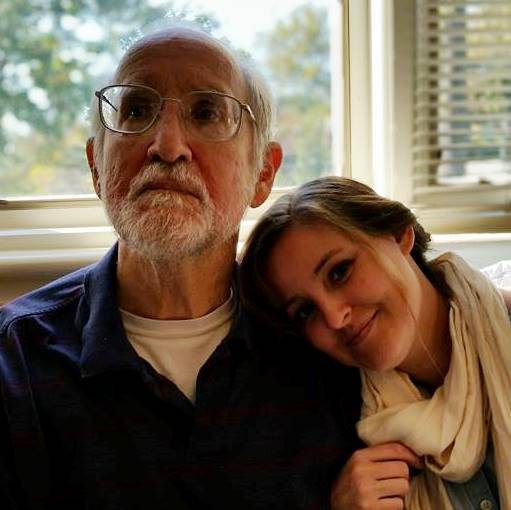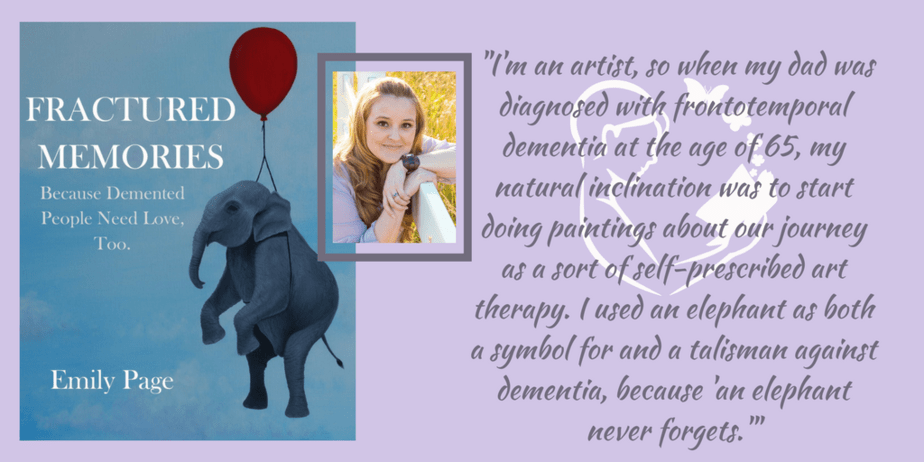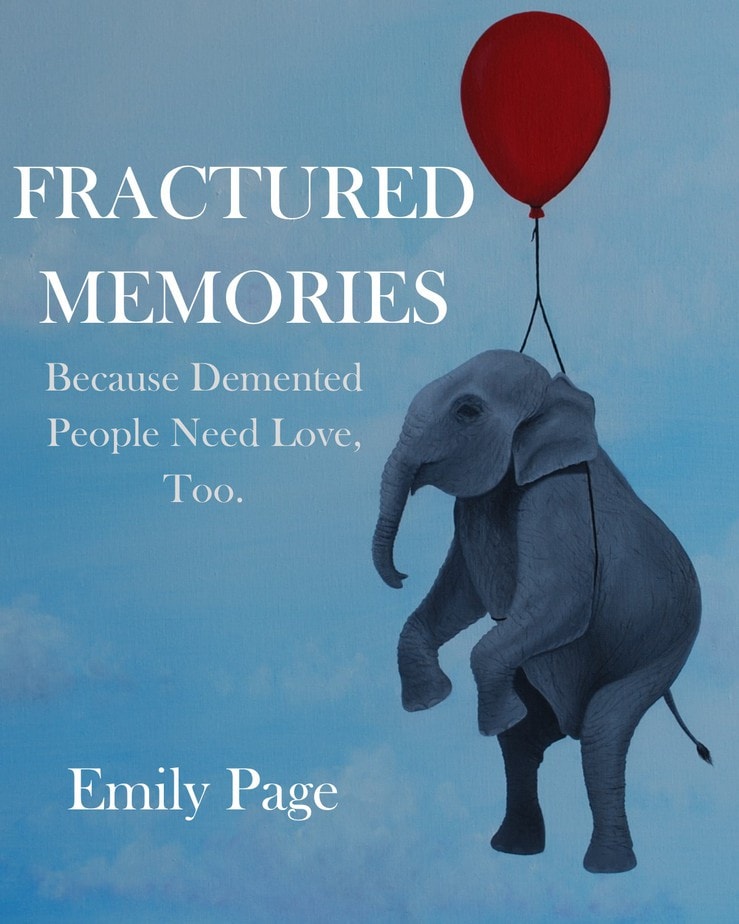Writing about dementia came about fairly slowly and organically. I’m an artist, so when my dad was diagnosed with frontotemporal dementia at the age of 65, my natural inclination was to start doing paintings about our journey as a sort of self-prescribed art therapy. I used an elephant as both a symbol for and a talisman against dementia, because “an elephant never forgets.” As I created paintings, I posted them on social media with an explanation of their meaning, and people really responded to them. At the insistence of a friend, I started a blog to help promote my artwork, and it became a kind of online journal. Before long, I was getting tons of great feedback from my readers when I posted about what we were experiencing as we coped with caregiving. “Me, too!” was a phrase I started hearing a lot.
After my dad passed away in early 2016, my readers kept calling for me to turn the writing and artwork into a book, which was a fairly terrifying thought. I don’t consider myself a writer, so the thought of sitting down and writing a book was daunting, but I knew that what I’d been writing about on my blog had spoken to people, and I hoped that the book would do the same thing.
When my dad was diagnosed, he was really open about his diagnosis, and so I decided that honesty was paramount if my book was going to do him justice. In our home, honesty meant not just talking about the really hard stuff, but laughing at the ridiculous stuff, too. There’s plenty of both. My motto was, “We laugh when we can, we cry when we must.” So I talked about the silly things he did as a result of the disease, and I talked about the raw, painful stuff that we were going through in our efforts to give him the best care possible. There are moments when I don’t make myself look so great, but I thought it was important for other caregivers to be able to see themselves in the writing and know that it’s okay and forgivable to not be perfect. We’re all just struggling to do our best for the people we love.
that honesty was paramount if my book was going to do him justice. In our home, honesty meant not just talking about the really hard stuff, but laughing at the ridiculous stuff, too. There’s plenty of both. My motto was, “We laugh when we can, we cry when we must.” So I talked about the silly things he did as a result of the disease, and I talked about the raw, painful stuff that we were going through in our efforts to give him the best care possible. There are moments when I don’t make myself look so great, but I thought it was important for other caregivers to be able to see themselves in the writing and know that it’s okay and forgivable to not be perfect. We’re all just struggling to do our best for the people we love.
I’m getting some great reviews on Amazon, but even more important to me are the people who’ve been given the book by a friend and have taken the time to look me up and email me to say, “Thank you. You said all the things I’ve been thinking.”
About the Author
 Emily Page is a professional artist and part-time writer. Working out of Raleigh, NC, Page spends most of her time elbow deep in paint, but comes up for air periodically to share her art and thoughts on her blog. She translated her ridiculous musings about her family’s journey through her father’s dementia into a book, Fractured Memories: Because Demented People Need Love, Too, available at http://shop.emilypageart.com/.
Emily Page is a professional artist and part-time writer. Working out of Raleigh, NC, Page spends most of her time elbow deep in paint, but comes up for air periodically to share her art and thoughts on her blog. She translated her ridiculous musings about her family’s journey through her father’s dementia into a book, Fractured Memories: Because Demented People Need Love, Too, available at http://shop.emilypageart.com/.
Follow her on Twitter at @EmilyPageArt23, and read her blog at https://emilypageart.net/.
Facebook: https://www.facebook.com/emilypageart




3 Responses
Emily, welcome to AlzAuthors! I’m also a North Carolina writer. I love how you use the elephant in your artwork. Also makes me think of how Alzheimer’s is often “the elephant in the room” — what people don’t want to talk about. Congratulations on your lovely book!
Reblogged this on The Perks of Being an Artist and commented:
I’ve joined the ranks of a fantastic group of authors who have written books about dementia called @AlzAuthors. They featured my book, Fractured Memories: Because Demented People Need Love, Too, on their blog today. If you have a moment, please hop over and give their blog a looksy and a little love (i.e., tweet it, stumble it, flip it, etc.).
How absolutely beautiful. You are in good company, Emily.